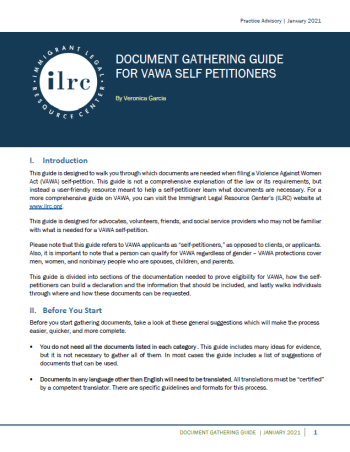
This resource is designed to help guide individuals gather the documents needed to file a Violence Against Women Act (VAWA) self-petition. The guide provides information for individuals as they begin to gather needed documentation and evidence for their filings. Note that the guide is not a comprehensive explanation of the law or its requirements, but instead a user-friendly resource meant to help a self-petitioner learn what documents are necessary. The resource is divided into three sections of the documentation needed to prove eligibility for VAWA, how the self-petitioners can build a declaration and the information that should be included, and lastly walks individuals through where and how these documents can be requested.
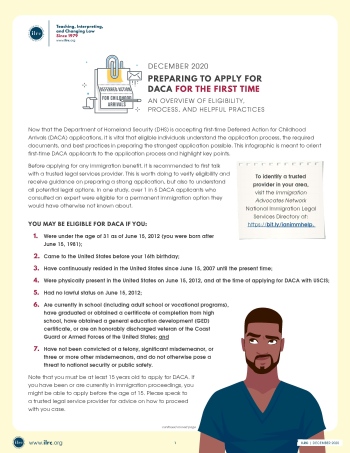
As new applicants begin to set their sights on initial DACA requests, there are several questions worth asking and steps worth taking to prepare productively. This guide is designed to walk community members through eligibility and process for submitting an initial application for deferred action and employment authorization. For information on submitting a renewal DACA application, please visit our full application deep dive video here.
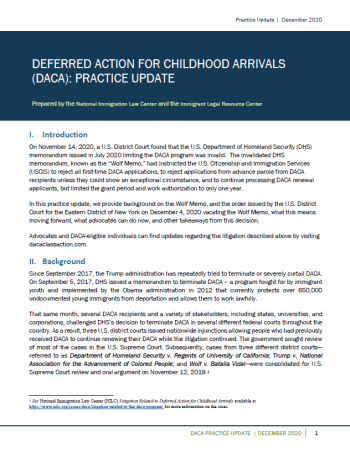
On November 14, 2020, a U.S. District Court found that the U.S. Department of Homeland Security (DHS) memorandum issued in July 2020 limiting the DACA program was invalid. This decision restored the DACA program to its original 2012 form and opened up the possibility for first-time applicants, restored two-year renewals, and allowed for DACA recipients to submit advance parole applications.
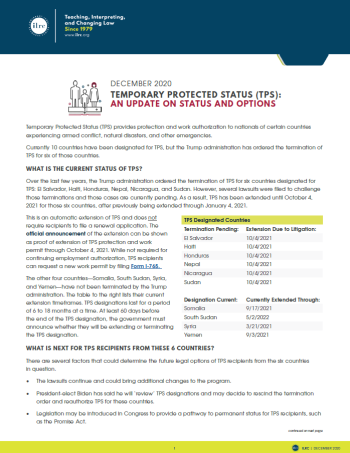
TPS recipients from six countries face potential termination of that protection from the Trump Administration, potentially impacting approximately 300,000 people. This resource provides an update on the current status of TPS for these countries and what rights and options beneficiaries have. It also outlines what they might expect as a result of legal challenges to the termination and under a new administration.
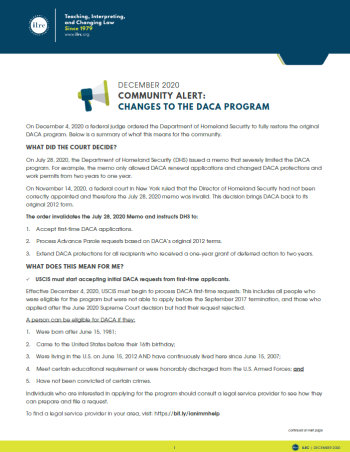
On December 4, 2020 a federal judge ordered the Department of Homeland Security to fully restore the original DACA Program. Allowing for the continuation of renewals, and opening the program to first time applicants. This resource is a summary on what this means for the community, how it impacts those looking to apply, and what next steps someone can take.
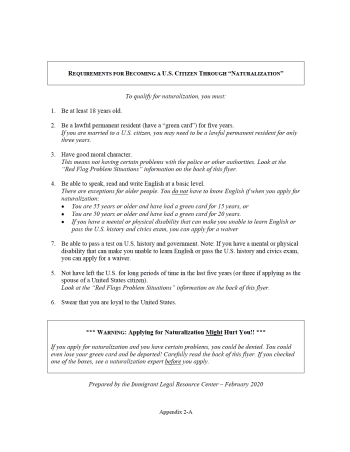
Every applicant for naturalization should complete a Red Flags Checklist before applying for naturalization to help gauge their eligibility and determine if a more thorough screening is necessary.
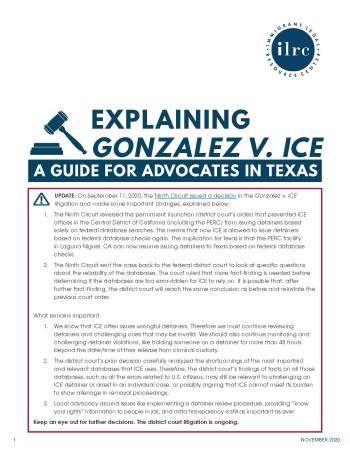
This resource includes an update regarding the ongoing Gonzalez v. ICE federal litigation. On September 11, 2020, the Ninth Circuit issued a decision which includes some important changes to the February 2020 Central District of California federal court order. We have included an update on the first page which discusses what has changed, followed by information from our April 2020 resource. Please note that some of the information in our April 2020 resource related to the previous district court order is no longer applicable.
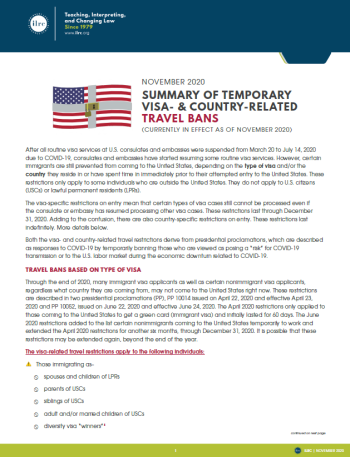
President Trump has imposed travel restrictions blocking the entry of certain immigrants who are outside the United States and trying to enter. These restrictions last through December 31, 2020. The travel restrictions apply based on type of visa and/or the country where the traveler resides or has spent time in immediately prior to their attempted entry to the United States. The restrictions do not apply to U.S. citizens or lawful permanent residents (green card holders). This brief guide outlines which visas and countries are covered by the restrictions.
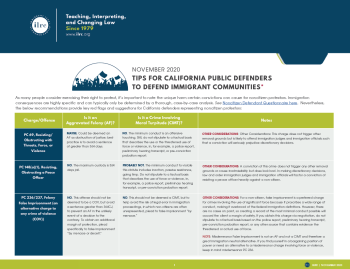
As many people consider exercising their right to protest, it’s important to note the unique harm certain convictions can cause for noncitizen protestors. Immigration consequences are highly specific and can typically only be determined by a thorough, case-by-case analysis. Nevertheless, this resource provides key red flags and suggestions for California defenders representing noncitizen protestors.

Noncitizens participating in demonstrations or protests can risk arrest and can face certain convictions that could bar some forms of immigration relief or increase the risk of deportability. For this, and other reasons, noncitizen clients with protest-related charges are at a heightened risk of facing immigration consequences. Defense counsel can help protect immigrants from these consequences by negotiating dispositions to alternative charges that avoid or mitigate the immigration consequences.